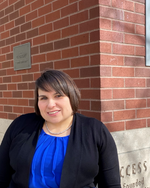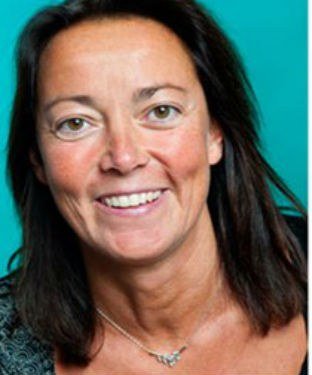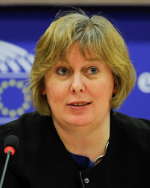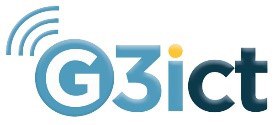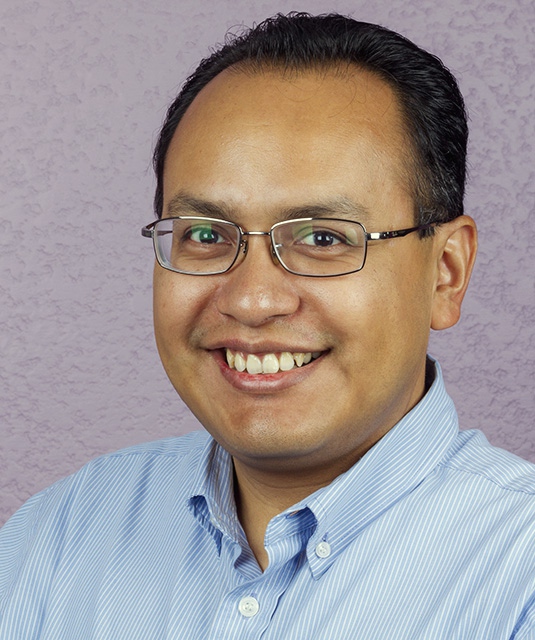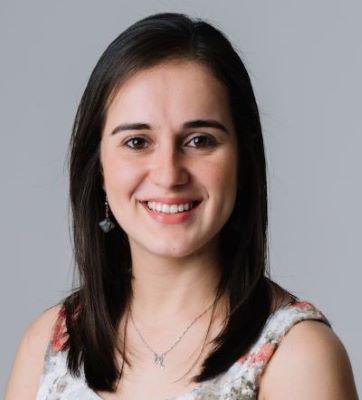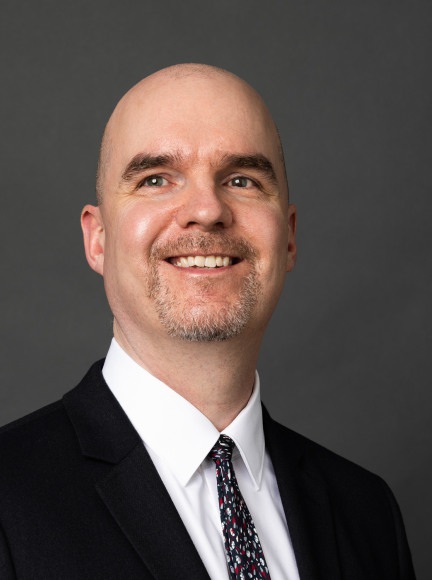The Third Global Disability Summit, April 2025
Posted on April 22, 2025
The third Global Disability Summit (GDS), held in Berlin, Germany on April 2-3, 2025, was co-hosted by the Government of Germany, the Government of Jordan, and the International Disability Alliance (IDA). More than 4,700 participants representing organizations of persons with disabilities, public and private sectors, and regional organizations from all over the world participated in the summit, ready to engage, collaborate, and partner.
This event came at a pivotal moment, with just five years left to achieve the 2030 deadline for the Sustainable Development Goals (SDGs). The Global Disability Summit (GDS) aligned closely with the SDG principles—especially the call to “leave no one behind” and the need for joined-up action across sectors. As a result, 71 governments, 17 regional organizations, and seven development banks and funds endorsed the Amman – Berlin Declaration.
The main agenda topics focused on critical areas to accelerating disability inclusion in a changing and diverse world. These included quality education, decent work, inclusive cities, data collection, health, disaster, and conflict as the primary focus points of the discussion.
The GDS 2025 agenda was shaped by the results of global consultations with key stakeholders. The Global Disability Inclusion Report 2025[1], emphasizes the importance of breaking silos and proposes pathways to accelerate inclusion. The Ammann – Berlin Declaration recognizes these pathways and provides nine commitments to foster inclusion, social and economic development of persons with disabilities in this changing and diverse reality.
The Global Disability Inclusion Report 2025 – Key Topics
· Embedding Inclusion as a Fundamental Right and understanding diversity and intersectionality
Inclusion is not an opportunity but a human right. Persons with disabilities make up over 16% of the global population, and exclusion has economic costs. Underemployment of persons with disabilities can cost up to 7% of GDP in low and middle-income countries.
Disability intersects with gender, age, income, ethnicity, and other identities; the one-size-fits-all policy approaches are ineffective.
· Implementing the CRPD effectively
National laws must be aligned with the Convention on the Rights of Persons with Disabilities (CRPD). Monitoring and assessing the country's progress with the Convention is still pertinent according to the report.
The G3ict DARE Index will be a vital resource for the next summit, with data collection for the 2025 DARE Index edition already underway. To ensure this tool remains an effective benchmarking tool, we invite organizations of persons with disabilities to collaborate.
· Strengthening Disability Data and Evidence
Promoting disaggregated and harmonized data systems is imperative to providing evidence to inform inclusive policies and track progress.
· Challenges and Opportunities in a Changing World
Climate change: Ensuring just transitions and inclusive climate action. Persons with disabilities often face greater challenges during extreme weather events (e.g., hurricanes, floods, wildfires). Evacuation shelters and evacuation plans are frequently inaccessible or not inclusive, leading to higher risks of injury, displacement, or death.
Technology: Leveraging inclusive tech while addressing the digital divide and AI risks. Inadequate representation in datasets at the design and training stages of AI will result in higher discrimination against persons with disabilities.
Urbanization: Making cities accessible and equitable. By 2025, nearly 7 out of 10 people will live in cities. This rapid urbanization presents challenges, including the need for infrastructure and social services investments, and can exacerbate existing inequalities. Persons with disabilities should be part of the discussion to secure an inclusive development of smart cities.
Migration & displacement: Protecting rights and supporting integration. In 2022, migration flows reached unprecedented levels, with around 6 million new permanent immigrants.
Care economy: Reforming systems to ensure dignity, autonomy, and gender equity. According to ILO[2], the care economy is growing and will create a great number of jobs in the coming years. However, care work across the world remains characterized by a void of benefits and protections, low wages or non-compensation, and exposure to physical, mental, and, in some cases, sexual harm.
Humanitarian emergencies: Building inclusive preparedness and recovery systems It is estimated that over 48 million persons with disabilities will require humanitarian assistance in 2025 in the context of an increasing number of emergencies.
· Accelerating Systemic Inclusion
Embedding inclusion in education, health, employment, and social protection. Promoting inclusive design, stigma reduction, assistive technology, and independent living supports.
To achieve systemic inclusion, inclusive infrastructure and services are needed; these are the result of anti-discriminatory policies that can be developed to strengthen OPD participation.
· Scaling Up Financing for Inclusion
Increasing disability-related national budget investments is the only way to achieve the above improvement. Inclusive public procurement is a key enabler of change and employment. Evidence-based budgeting and OPD engagement are essential.
· Strengthening Participation and Cross-sector Coordination
Involving Organizations of Persons with Disabilities (OPDs) in decision-making at all levels. Promoting whole-of-society collaboration, including governments, civil society, the private sector, and development agencies.
GDS Commitments
The GDS commitment mechanism allowed stakeholders to make concrete pledges to implement the rights of persons with disabilities. More than 800 commitments were received for the 2025 GDS, which is the foundation of the Amman-Berlin Declaration.
Key commitments were announced at the conference, such as the UK’s Foreign, Commonwealth & Development Office (FCDO) that pledged to launch an Assistive Technology Investment Vehicle. UNICEF committed to dedicating 10% of its annual budget to support children with disabilities by 2030, with a focus on enhancing data collection and expanding inclusive education and child protection systems across 50 countries. The multilateral education initiative Education Cannot Wait will collaborate with Germany, the United Kingdom, IDA, and the Girls’ Education Challenge to improve data collection and accountability for inclusive education in crisis-affected regions by 2028.
The International Disability Alliance (IDA) committed to empowering Organizations of Persons with Disabilities (OPDs) in more than 100 countries to influence policy-making, launching a leadership development program for 80 young persons with disabilities, and partnering with the UN Global Disability Fund to support CRPD implementation in 50 countries.
In a Joint-Commitment with IDA, G3ict reinforced its dedication to fostering digital inclusion for persons with disabilities by endorsing the UN Global Digital Compact (GDC), a framework advocating for the responsible and inclusive use of digital technologies, which was adopted by the UN General Assembly in September 2024 as part of the "Pact for the Future." G3ict actively engaged in the consultation process, offering expert contributions through a dedicated working group and leveraging nearly 20 years of collaboration with global stakeholders.
The Amman-Berlin Declaration
The Amman-Berlin Declaration, endorsed by 71 governments, emphasizes the importance of meaningful engagement.
The Declaration, as the outcome document of the Third Global Disability Summit 2025 in Berlin, highlighted the following engagements:
- Inclusive International Development
- All international development programs will strive to be inclusive and accessible to persons with disabilities.
- Goal: actively contribute to equality and non-discrimination, while ensuring no harm is done.
- “15 for 15” Target
- Aim: At least 15% of all international development programs at the country level should explicitly pursue disability inclusion by 2028.
- Strengthen and Resource OPDs
- Ensure full, effective and meaningful participation of Organizations of Persons with Disabilities (OPDs) in all development and humanitarian stages.
- Commit to providing safe, enabling environments and increased funding for OPDs.
- Combat Intersectional Discrimination
- Address the needs of under-represented and high-risk groups, particularly:
- Women and girls with disabilities
- Children and youth with disabilities
- Tackle multiple and intersecting forms of discrimination with intersectional responses.
- Address the needs of under-represented and high-risk groups, particularly:
- Disability Inclusion Across All Sectors
- Foster inclusion across every aspect of international development cooperation, recognizing disability as a cross-sectoral issue.
- Inclusive Humanitarian Action
- Ensure that humanitarian efforts comply with Article 11 of the CRPD and other international standards.
- Pledge to remove barriers and involve persons with disabilities in planning, relief, and recovery.
- Inclusive Partnerships
- Collaborate with the private sector, academia, civil society, and trade unions.
- Promote mutual learning, funding, and innovation (including in AI and assistive technologies).
- Better Data and Evidence
- Commit to strengthening disability-related data collection and use.
- Recognize tools like the OECD-DAC disability marker to improve monitoring and accountability.
- Unified Global Action Post-2030
- Reaffirm collective responsibility to uphold disability rights beyond 2030.
- Emphasize a global, coordinated approach to sustaining progress.
[1] The Global Disability Report 2025 can be downloaded at: https://www.globaldisabilitysummit.org/resource/global-disability-inclusion-report/





